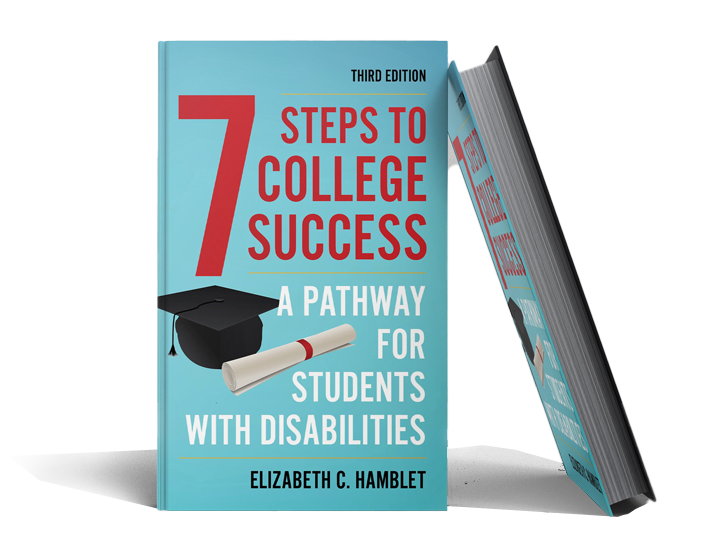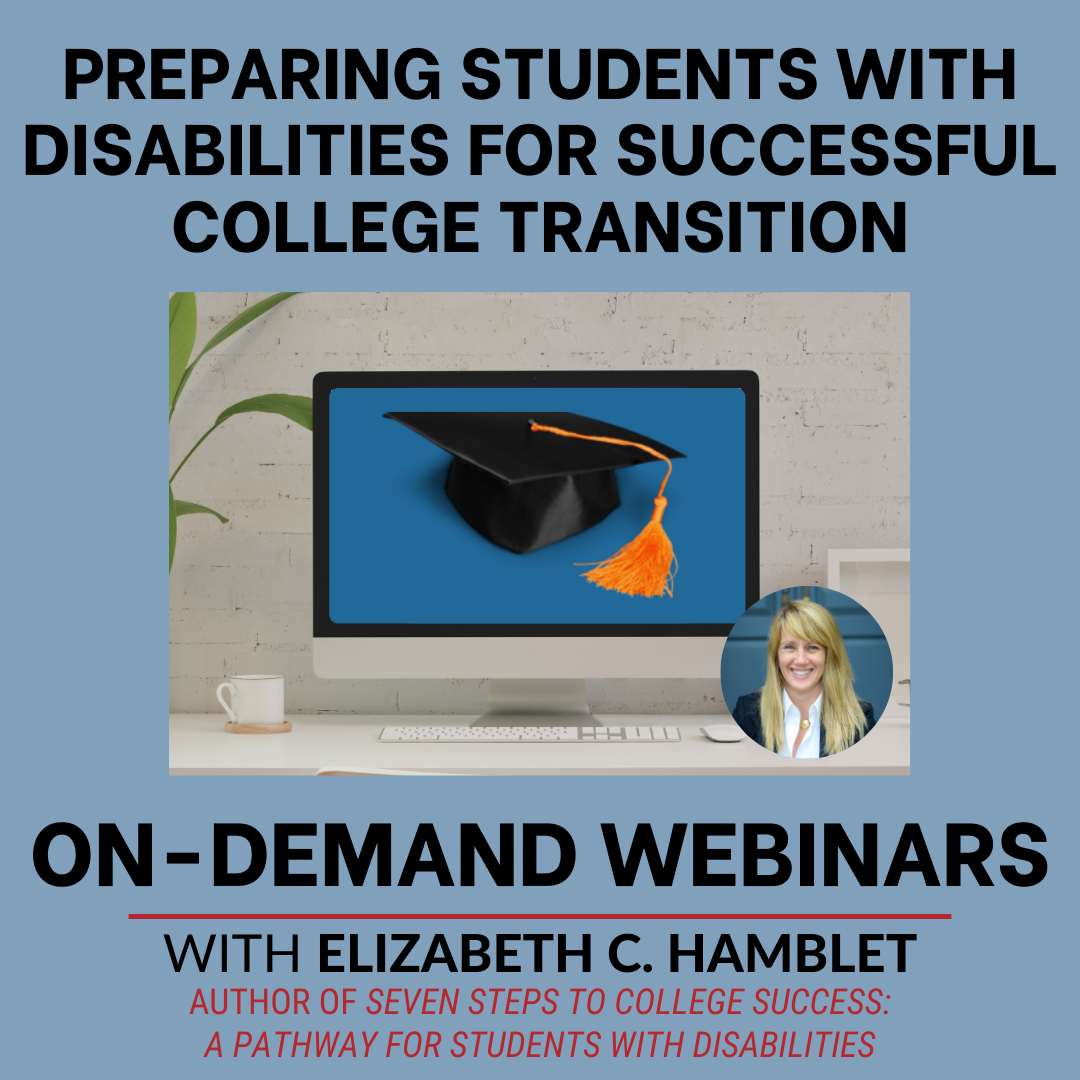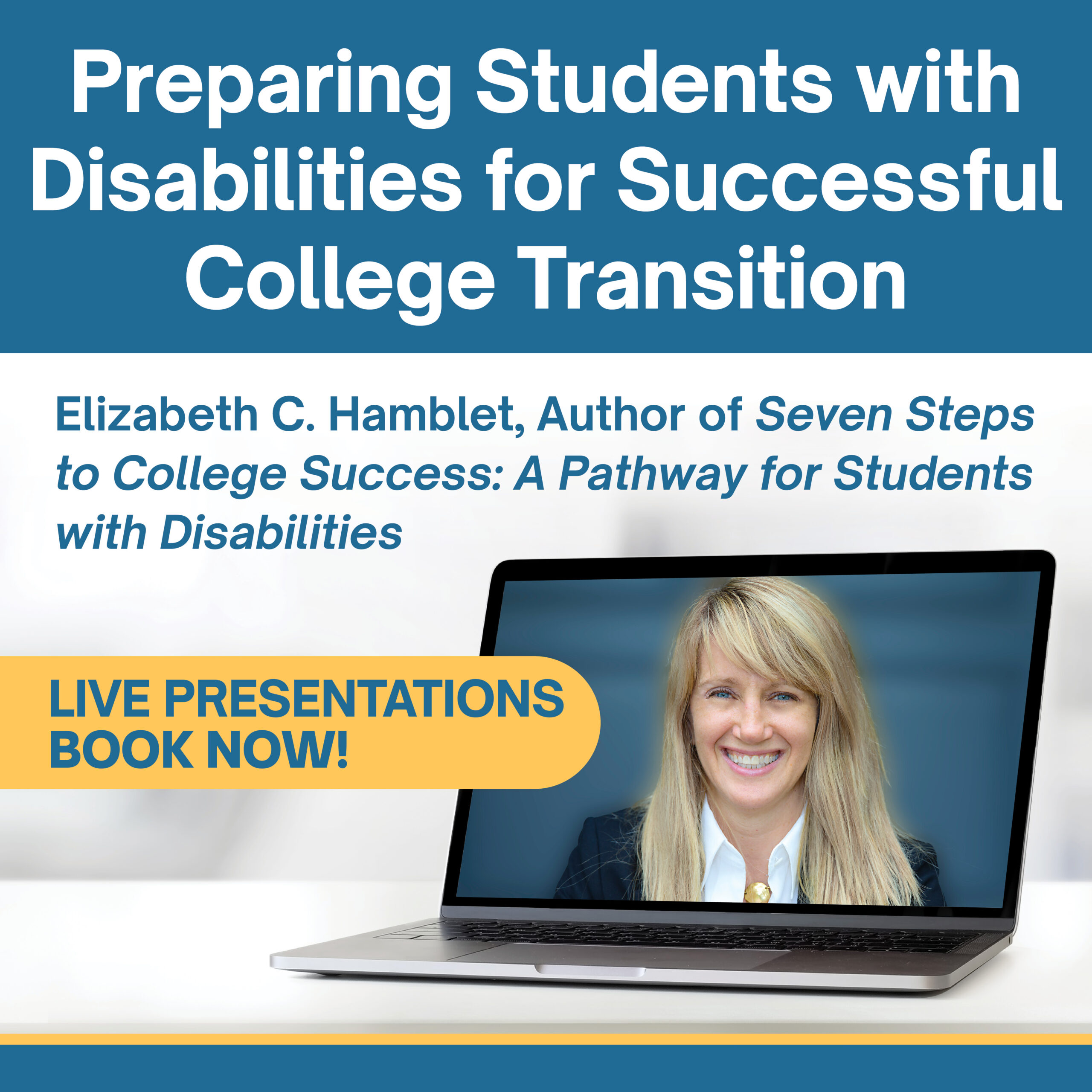Introduction
A colleague posted to our community of college disability services professionals about a complaint a student had just filed. The student, who had approval from the disability services (DS) office to use her laptop to take notes, told DS that she had not done so because the professor announced at the start of the term that students were not allowed to use any technology. The student didn’t say anything about this to her DS coordinator about this until there were only two weeks left in the term.
I am not a lawyer, and this is neither legal nor medical advice, and it should not be interpreted as such. (Contact a qualified professional for such counsel.) That said, I’ve worked in DS offices for a long time, and I worry that students don’t have the information they need.
What responsibilities do students typically have in the college accommodation system?
Students must:
- Register with the college’s disability services office (DS) or appointment person if they want accommodations (learn how this usually works in this post or this video)
- Play a role in sending to professors the notification that they’re approved for accommodations (processes vary from college to college)
- (At a lot of colleges) complete a form each time they have an exam on which they want to use accommodations (this isn’t assumed) and get it to DS by the deadline
What are students’ rights?
- They never have to be in contact with DS if they don’t want to register for accommodations. No one can require them to register.
- If they do register, they have a right to keep details about their disability private. Typically, the notifications DS writes to professors listing students’ approved accommodations won’t reveal their disability. And if professors ask students to reveal anything about their disability, they’re not required to do so and professors can’t then refuse to allow them to use their accommodations. (There may be emergencies where details about a student’s disability is disclosed to someone at the college without the student’s permission. Again, this is not legal or medical advice, just general educational information. Please see a qualified professional for questions about this.)
- Students have a right to use only some of their accommodations in all or some of their classes or use all of their accommodations in one class but not another. No one can demand that they use all of their approved accommodations.
- If DS has approved accommodations, students have a right to use them unless professors raise objectsions that are reviewed in the university’s process for this and that process finds the accommodations unreasonable. (See below for more information.)
What students should know
- Professors may not have any training on disability issues and accommodations.
- When DS offices tell students to talk to professors about their approved accommodations, they’re not telling students to negotiate with their professors. (This is a common misunderstanding.) They just want students to make sure professors know about their approved accommodations and see if there are any problems, and learn what professors expect students to do as part of the adminstration of those accommodations (if they have such expectations).
- Professors can’t unilaterally (by themselves) refuse to allow students to use their DS-approved accommodations. Every college should have a process to review professors’ objections to approved accommodations, BUT…
- Professors may not know that they can’t simply refuse to let students utilize some accommodations without this kind of review. (Again, they may not have had any training.) This means that they may not contact DS to say they don’t want to allow the accommodations – they may just tell the student they can’t have them. Students should not simply go with what the professor has said. They should contact DS right away.
- Some professors may not tell students they can’t have certain accommodations, but they may try to persuade them not to use something DS has approved. Students don’t have to listen to professors if this happens. But they shouldn’t silently continue using those accommodations. Again, they should contact DS right away.
What should students do?
It’s a good idea start the term prepared.
At the time they first get their accommodations approved, they should ask their DS coordinator what they should do if any professor objects to one (or all) of them. Most students will not have this difficulty, but knowing what to do and what the process looks like may help to ease their anxiety about this. They”ll likely be told to contact the coordinator right away so that the coordinator can contact the professor about their objection(s).
Even if students have talked to professors at the start of the semester, something may crop up later in the term. That doesn’t mean students have missed the chance to tell their coordinator if there’s a problem. They just need to do it right away – whenever it happens.
What else do students need to know?
1) Reporting problems (and doing it quickly) is students’ responsibility
It may seem unfair, especially when accommodations have been approved by DS, but it’s students’ job to tell DS when something isn’t working with their accommodations, and they’re expected to do so in a timely manner so that DS can address the problem. What is so unfortunate is that in this particular case, the student waited until the term was almost over to complain.
DS offices are not responsible for checking in on or monitoring the effectiveness of students’ accommodations, so they won’t know about a problem unless students tell them. And in a number of cases I’ve read about where students have complained to the Office for Civil Rights (OCR), OCR has generally not found colleges not to be at fault for delays in addressing problems when students have waited to complain about accommodations.
2) It is their right to have their DS-approved accommodations without any kind of penalty, unless students themselves are the cause of the issue
For instance, if students arrive at the alternative location to take an exam and the DS staff hasn’t printed it yet, or the laptop they’re using keeps crashing, the time it takes to fix that should not be taken away from students’ exam time.
But if students arrive late to the testing center, they are likely to lose whatever time has passed to take their test.
3) When there’s a question about whether an accommodation would create a fundamental alteration to a course, professors’ objections may stand
There might be some situations where professors can make a case for why an accommodation shouldn’t be allowed in their class. Typically, this is only when professors can show that the accommodation fundamentally alters the goals of that class, or what professors are measuring in their assessments. Again, students shouldn’t just take professors’ word for it – they should contact their DS coordinator immediately if professors refuse one of their approved accommodations. (Professors can refuse any request that has not been approved by DS, even if another professor is providing it.)
This said, students can request a review, and they have a right to appeal any decision. Their DS office should have a process for this. If they prefer, they can also file a complaint with their regional OCR office (or do this instead of using their college’s process).
4) They shouldn’t feel bad about using their approved accommodations if a professor tries to convince them that they shouldn’t
DS has a process to review accommodations for a reason – to make sure that the university is providing students with disabilities equal access to the college’s environment. Accommodations aren’t designed to provide students with an advantage. Professors may be well-intentioned (or not) in trying to talk students out of using their accommodations, but students don’t have to feel embarrassed or guilty about using them.
What if DS doesn’t approve student’s requested accommodations (or any accommodations) when they register with DS?
While it’s unlikely to happen to many of them, sometimes students who have had accommodations in the past (either at another college or in high school) may not be found eligible for any accommodations at college, or may be approved for some but not all of their requested accommodations.
Their DS contact person should explain why they were either found ineligible or were found eligible and didn’t get everything they requested. In either case, they should ask if gathering more information might help them to support their case. And they should ask for the process to file an appeal (it may be called a grievance) and follow that procedure within whatever timelines are laid out in that process. It’s a good idea for students to put everything in writing.
Be aware that sometimes students make requests for accommodations that colleges don’t have to provide because of the expectations held for all students at college (e.g., colleges won’t require professors to email a student all of the assignments because students are expected to use the learning management system to find them). Or they might request accommodations that the laws specifically exempt colleges from having to provide (e.g., anything that fundamentally alters a course). [Read my book or watch my on-demand webinar on this topic to learn more.]
They should still file an appeal to make sure they’ve exhausted all of the avenues available to them. And as already noted, if they’re unhappy with that outcome (or they’d prefer to start this way), they can always file a complaint with OCR.




